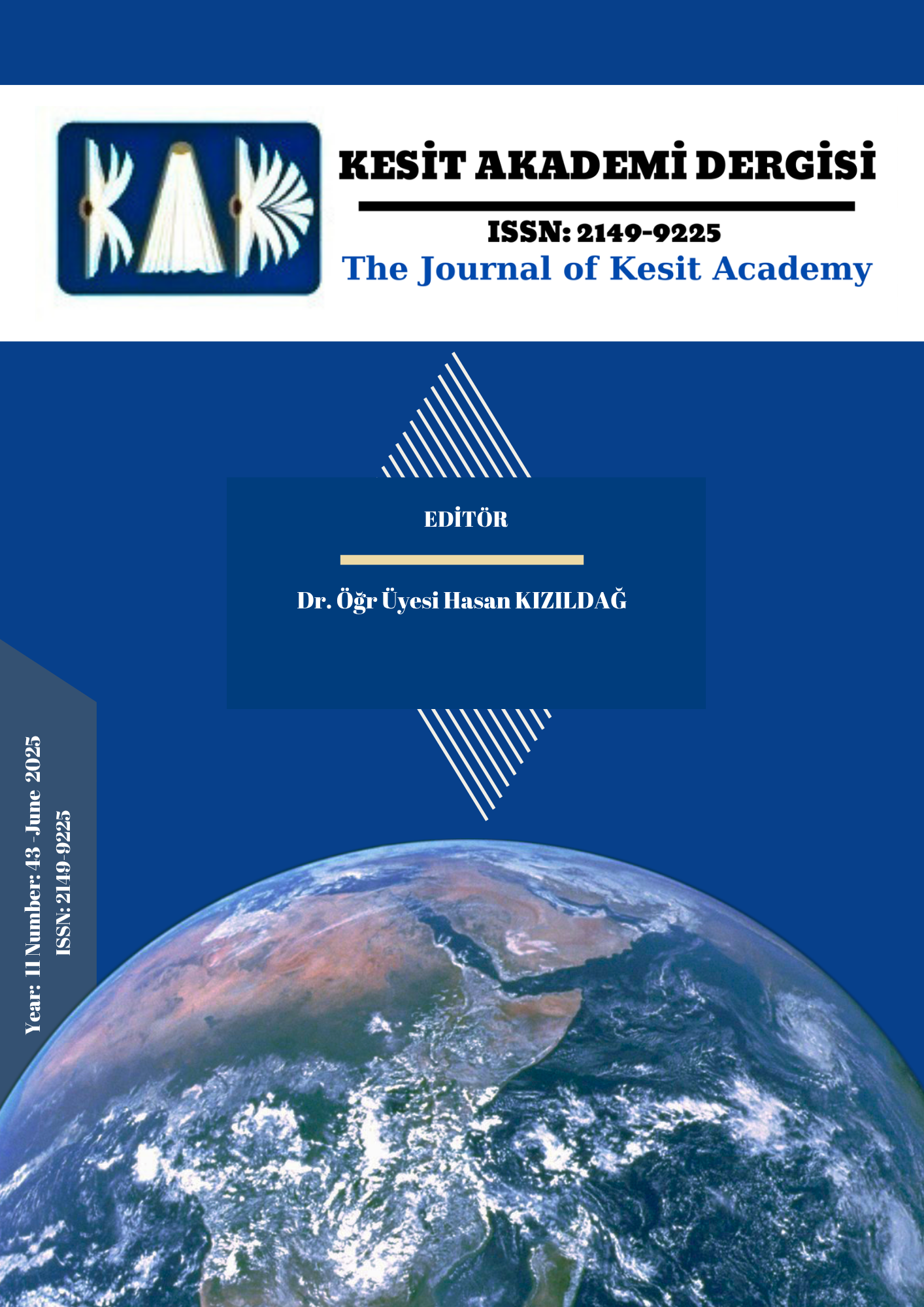Author :
Abstract
Edebiyata şiirle giren Sabahattin Ali, roman, öykü ve eleştiri türünde birçok eser kaleme almıştır. Şiirlerinde genellikle hece ölçüsünü kullanan yazar, halk şiirinin geleneksel sesini eserlerine yansıtmıştır. Onun şiirleri, müzik ve edebiyatı bir araya getirmiş, şiirlerinin bestelenmesi bu iki disiplini birbiri ile buluşturmuştur. Sabahattin Ali’nin şiirlerinde halk şiirinin nazım biçimlerini ve tematik yapısını kullanması, bu türün türkü formunda bestelenmesine de olanak sağlamıştır. Bu çalışma, Sabahattin Ali’nin “Hapishane Şarkıları” başlıklı şiirlerinde zaman ve mekân kavramlarını ele alarak, hapishanenin bireyin algısını nasıl şekillendirdiğini ve zamanın hapishane koşullarında nasıl değiştiğini analiz etmeyi amaçlamaktadır. Hapishanede yeni bir kimlik kazanan bireyin olumsuz duyguları fenomenolojik olarak değerlendirilmiş, bu mekânda bireyin varoluşsal mücadelesi ele alınmış, hapishanenin insan üzerindeki fiziksel ve psikolojik etkileri örnek şiirlerden hareketle tespit edilmeye çalışılmıştır. Çalışmada nitel bir araştırma yöntemi benimsenmiş, Sabahattin Ali’nin “Hapishane Şarkıları” şiirleri içerik analizi yöntemiyle incelenmiştir. Şiirlerde kullanılan metaforlar ve imgeler göstergebilimsel açıdan değerlendirilmiş, hapishane olgusunun bireyin zaman ve mekân algısına etkileri felsefi ve edebi fikirlerle desteklenerek analiz edilmiştir.
Keywords
Abstract
Sabahattin Ali, who entered literature with poetry, wrote many works in the genres of novel, story and criticism. The author, who generally used the syllabic meter in his poems, reflected the traditional sound of folk poetry in his works. His poems brought music and literature together, and the composition of his poems brought these two disciplines together. Sabahattin Ali’s use of the verse forms and thematic structure of folk poetry in his poems also enabled the composition of this genre in folk song form. This study aims to analyze the concepts of time and space in Sabahattin Ali’s poems titled “Hapishane Şarkıları” (Songs of the Prison) and to analyze how prison shapes the perception of the individual and how time changes under prison conditions. The negative emotions of the individual who gains a new identity in prison are evaluated phenomenologically, the existential struggle of the individual in this space is discussed, and the physical and psychological effects of prison on human beings are tried to be revealed through sample poems. In the study, a qualitative research method was adopted and Sabahattin Ali’s poems “Hapishane Şarkıları” were analyzed through content analysis. The metaphors and images used in the poems were evaluated semiotically, and the effects of the prison phenomenon on the individual’s perception of time and space were analyzed by supporting philosophical and literary ideas.





